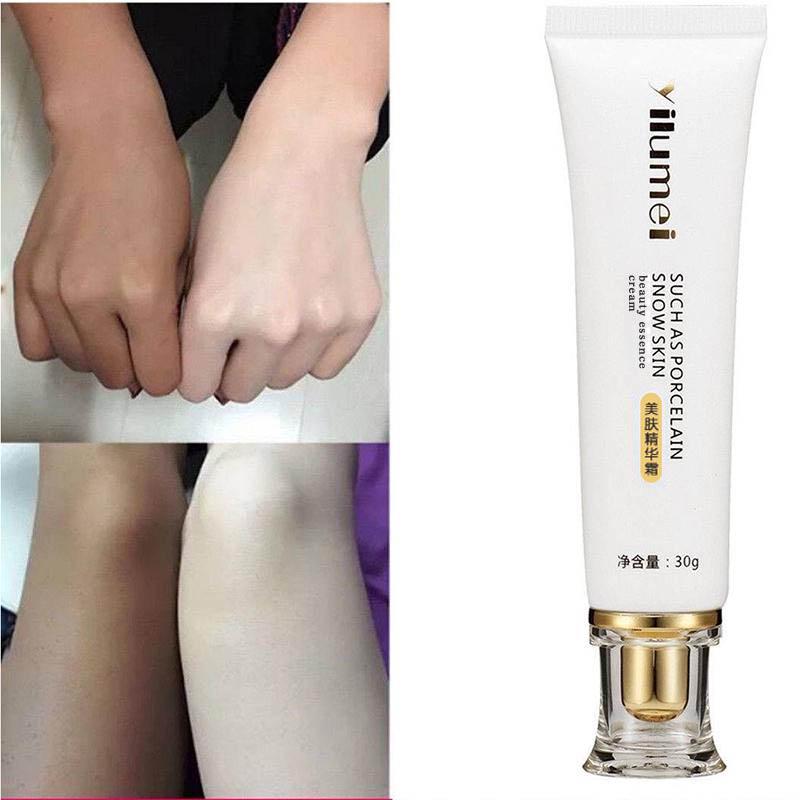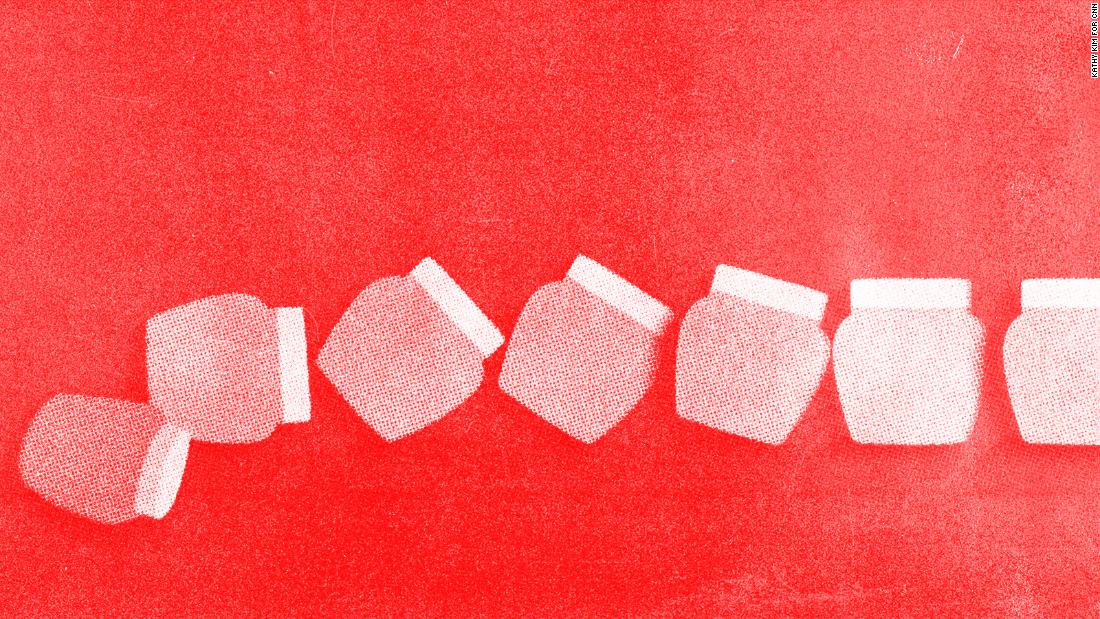Sierra asks to use a pseudonym for fear of being caught by the authorities. The 27-year-old shopkeeper explains that she can’t maintain her seven-year skin lightening routine because a ban has made the products unaffordable.
In 2018, the Rwandan government began enforcing a nationwide ban on cosmetics and hair dyes containing harmful chemicals like hydroquinone (above certain levels) or mercury, making it illegal to produce or sell most skin lightening cosmetics.
So now, Sierra has a pressing problem: finding a new supplier. Because of the stiff penalties attached to getting caught, smugglers “refuse to sell them to just anyone,” she said. Anyone caught trading them is subject to up to two years in prison and a maximum fine of five million Rwandan francs (around US $5000). Many dealers have been arrested to date.
Sierra explains that if you’re not among the chosen few who have earned a smuggler’s trust, you simply can’t get hold of skin lightening creams, or “mukorogo” as they’re known locally.
Daily life at a local market in Musanze, Rwanda. The town is known as a gateway to visit the country’s mountain gorillas.
The decision to ban the products came after authorities — ranging from the health and security departments to customs and local government — received countless reports of the damage done to users’ skins from applying these cosmetics, Simeon Kwizera, the public relations officer at the Rwandan Standards Board, tells Jahanbanou.
Misuse or prolonged use of products containing mercury, steroids or hydroquinone can be toxic to your health and despite the ban, there remains demand for lighter skin, which keeps the market for these products very much alive, albeit smaller and driven underground.
Forty-five-year-old Olive (also a pseudonym) has managed to secure a regular supply of skin-lightening products.
She says that once a month, she heads to a cosmetics shop in Musanze, a town known as a gateway for those wishing to track Rwanda’s famous mountain gorillas.
Once in the shop, Olive makes discrete eye contact with her supplier and uses a few code words to explain why she has come. She is then handed a tub of cream, concealed in a large envelope.
The tailor and mother of two has been lightening her skin for more than five years and the ban has forced her to both pay more for, and be flexible about, her beauty regimen.
“Before the ban, I used to purchase [my cream] for 2,000 Rwf (around $2) to brighten my skin and look beautiful, but it is no longer available,” she says. The new brand she uses is double the price.
“At least it’s obtainable,” Olive says before admitting that her inconsistent income has occasionally forced her to put her skin regimen on hold. In Rwanda, the average monthly income for a woman is 42,796 Rwf ($41.83).
For another user, Clementine, who also asked to be referred to by an alias, her cream became five times more expensive. It went from 2,000 Rwf (US $2) to 10,000 Rwf (US $10). She tells CNN she would often skip meals to be able to afford the products.
But it wasn’t the financial hardship that made Clementine, who has no stable income, stop using lightening creams. It was only “after knowing how dangerous it is and after my skin got more white than what I wanted that I decided to quit,” she says.

Nationwide raids
Regulations on skin lightening products in the small, landlocked country of around 13 million people began with a 2016 ministerial order that prohibited the use of 1342 harmful chemicals and compounds — including hydroquinone above certain percentages, mercury and steroids — in cosmetics. These three ingredients are commonly found in skin lightening products.
While the 2016 law outlined the prohibited ingredients and products, it was only in 2018 that authorities began clamping down on violations.
“There was a lag between the 2016 ministerial order and its enforcement in 2018,” Yolande Makolo, the Rwandan government spokesperson, she said. This is because various departments needed to build capacity to inspect products and enforce the ban, she explains.
During that time, laboratories to test for harmful ingredients were built by the Rwanda Standards Board (RSB), an official regulator for cosmetics and pharmaceuticals. The Rwanda Food and Drug Authority was established, and relevant laws, including penal codes, were introduced. Rwanda’s president, Paul Kagame, also publicly lent support to the initiative in November 2018 saying on Twitter that skin bleaching was “quite unhealthy among other things,” and that it “includes use of prohibited chemicals.” The president added that the Ministry of Health and Rwanda National Police (RNP) “need to reign this in very quickly…!” Raids on shops and in public markets began to take place across the country at the end of that year.
In 2020 alone, RNP spokesperson, Assistant Commissioner of Police (ACP) Jean Bosco Kabera, tells CNN that the police confiscated around 13,596 units, meaning skin lightening products, and that this number increased to 39,204 units confiscated in 2021.
Rwandan law enforcement agents have relied on people informing on their neighbors in order to crack down on the illegal sale of skin whitening products. However, raids have been accompanied by efforts to raise awareness of the chemical properties of banned products, both among importers and local manufacturers, as a preventative measure.
The RSB “trained cosmetic importers, local manufacturers and all value chains about the new policies and how to check content in these products” for illegal ingredients or illegal levels of certain ingredients said public relations officer Kwizera, adding that the training is ongoing. Those taking part are then assessed and the products they import or make locally are then certified by the RSB.
To date, 91 locally made cosmetic products, manufactured by 19 companies, have acquired the RSB’s S-Mark, which serves to reassure consumers that safety and quality standards have been met, according to Makolo, who explains that certifying safe Rwanda-made cosmetics can help businesses reduce losses resulting from importing or producing items that breach the ban and are subsequently confiscated.
The government also ran awareness campaigns within the community, and on media and social media to inform people about the risks of whitening as well as the ban itself.
Becoming taboo
According to Makolo, the ban’s impact has been tangible. “Generally speaking, policies have been quite successful. These products can only exist illegally: the amount is small, the awareness about how harmful these products are is high.” Using skin whitening products has “become a taboo,” she says. However, data to support this has not been made available.
https://edition.cnn.com/2022/07/13/africa/rwanda-skin-whitening-ban-as-equals-intl-cmd/index.html


